History
We invite you to take a time tour of the most relevant dates in the history of the entity.
1974
The Society for Financial, Economic and Social Studies (SEFES) is founded in Baix Llobregat to provide a business response to the first union movements.
1992
7,000 businessmen gather in Plaça Sant Jaume under the slogan ‘Let’s say enough’ to protest against the introduction of the Economic Activities Tax (IAE).

1994
Pimec and AEI merge.
1997
The Pimec and SEFES employers’ associations merge to form a strong Catalan employers’ association representing and defending SMEs.
2002
Pimec reaches a historic milestone: the Spanish Government abolishes the Economic Activities Tax (IAE) for SMEs and self-employed people.
2007
Pimec creates the Pimec Foundation and the emppersona program to support businessmen and women who have lost their jobs due to the economic crisis and are looking for a second chance.
Specific regulatory framework for self-employed people.
2009
Self-employed people and SMEs gather in front of the Congress of Deputies to demand measures against the economic crisis under the slogan ‘Without SMEs there is no future’.
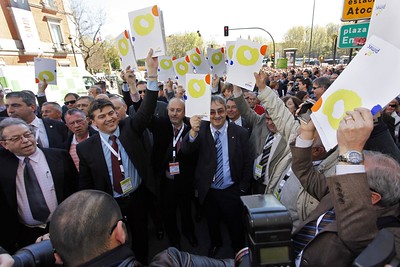
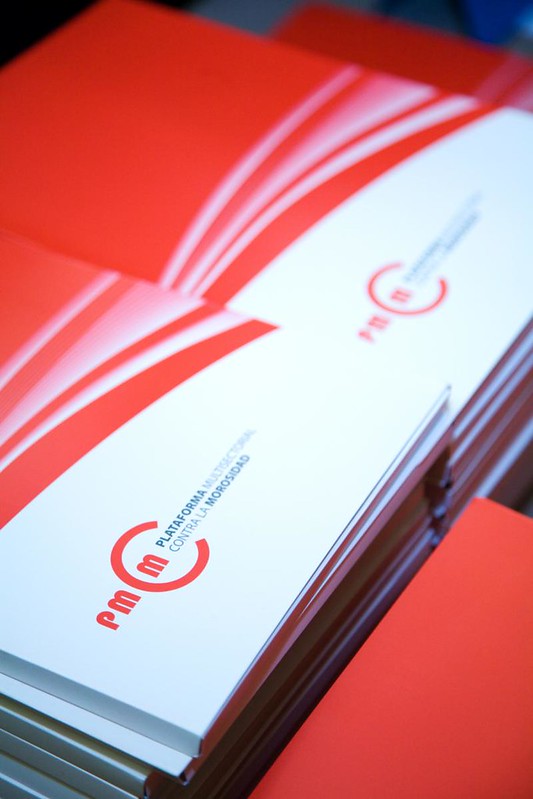
2010
The Law on Late Payments is amended and payment terms are reduced to 60 days in the private sector and 30 days in the public sector. PIMEC promotes the creation of the Multi-Sector Platform against Late Payments (PMcM).
Late Payments. Amendment to Law 15/2004. Congress votes in favor of abolishing the agreement of the parties.
2011
The Supreme Court rules that Pimec must negotiate the Interprofessional Agreement of Catalonia (AIC) and must form part of the Labor Court of Catalonia (TLC).
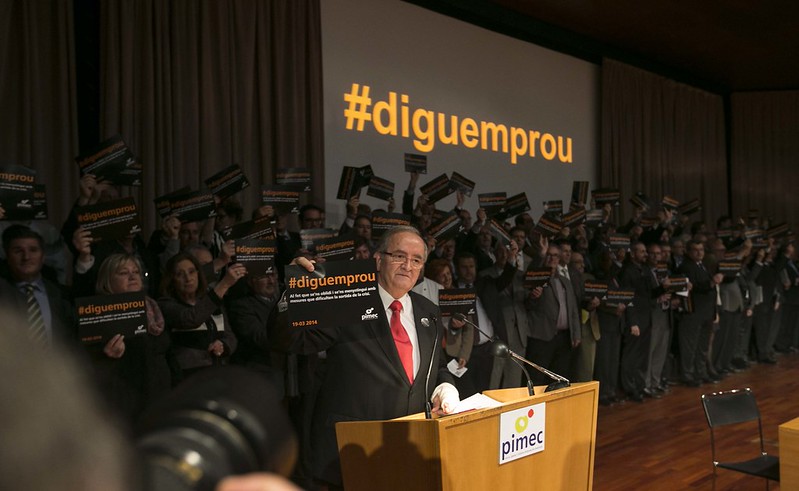
2014
More than 1,400 business and self-employed people are meeting at the Palau de Congressos in Barcelona in a protest event under the slogan ‘Let’s say enough’ to denounce the lack of sensitivity of governments towards smaller companies.
2016
Pimec presents studies and proposals on the minimum wage and collective bargaining.
Approval of the reform of self-employment (Law 6/2017) with numerous amendments by Pimec.
2017
Pimec enters the Economic and Social Council of Barcelona (CESB).
Pimec presents amendments to the Public Sector Contracts Law (Law 9/2017), which are widely accepted.
2018
Pimec joins the SME Platform, the new intersectoral business organization that represents more than 2 million SMEs and self-employed people.
Pimec Comerç, as the sole representative of business organizations, signs the general agreement for the commerce sector with the UGT and CCOO unions.
Pimec, with the support of the Barcelona City Council, promotes the first Public Procurement Fair, where 80 future contracts were exhibited for an amount exceeding 545 million euros.
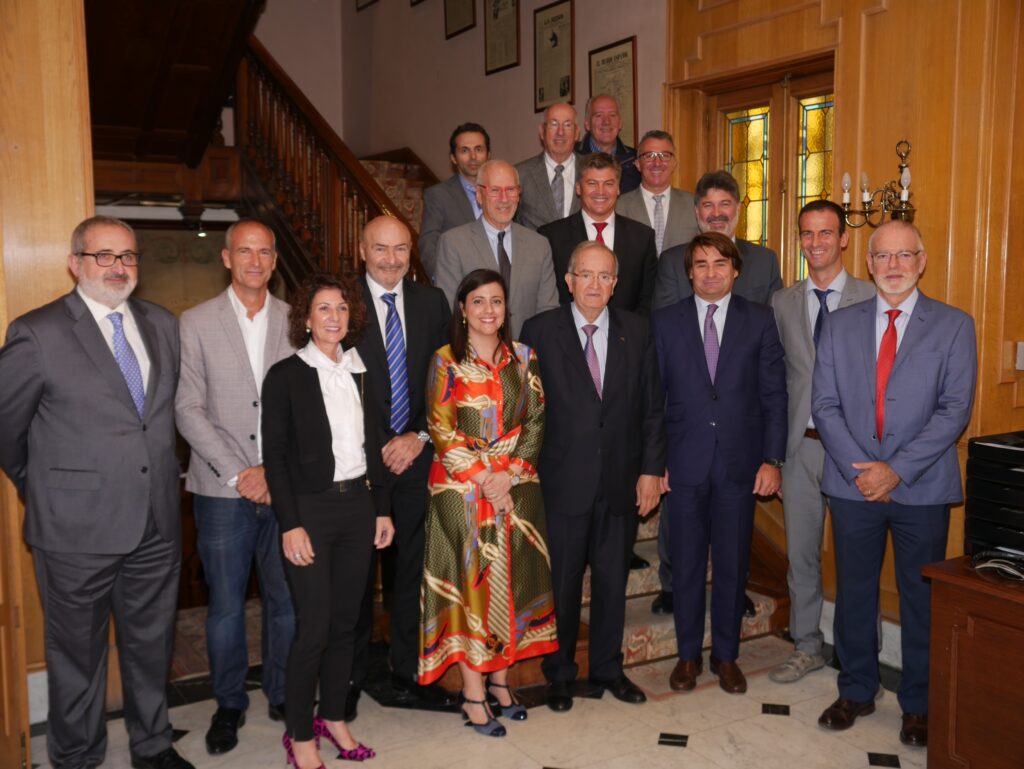
2019
Pimec and Foment agree that institutional representation will be considered equal for all purposes, which means that from now on they will have an equal distribution of representatives, rights and guarantees.

2020
Approval of the Institutional Participation Law, the Permanent Social Dialogue, and the Social Concertation of the most representative trade union and business organizations in Catalonia.
Constitution of the Social Dialogue Council formed by the government and the most representative trade unions and employers, which oversees development and social concertation.
Pimec joins the European Economic and Social Council.
Pimec participates in the different spaces of concertation and social dialogue for the management of the health crisis and for cooperation in the construction and execution of public policies that seek to respond to it.
2021
Constitution of CONPYMES, which was created to respond to the need for the country’s economic engine, SMEs, to also have representation with their own voice at the state level.
Celebration of the SOM Indústria Summit, where Pimec calls for an urgent approach to the new National Pact for Industry in a consensual manner.
Entry of Pimec into the Free Zone Consortium.
Pimec submits proposals to the European Union to mitigate the risk faced by the recovery of SMEs with the increase in energy and raw material prices.
2022
Limitation of access to public aid for companies that do not comply with the Law on Default through the proposals presented by Pimec and the PMCM in the processing of the Law on Growth and Business Creation.
Pimec signs the new National Pact for Industry to relaunch and transform the industrial model in Catalonia.
Antoni Cañete is appointed vice-president of European SMEs (SME United).
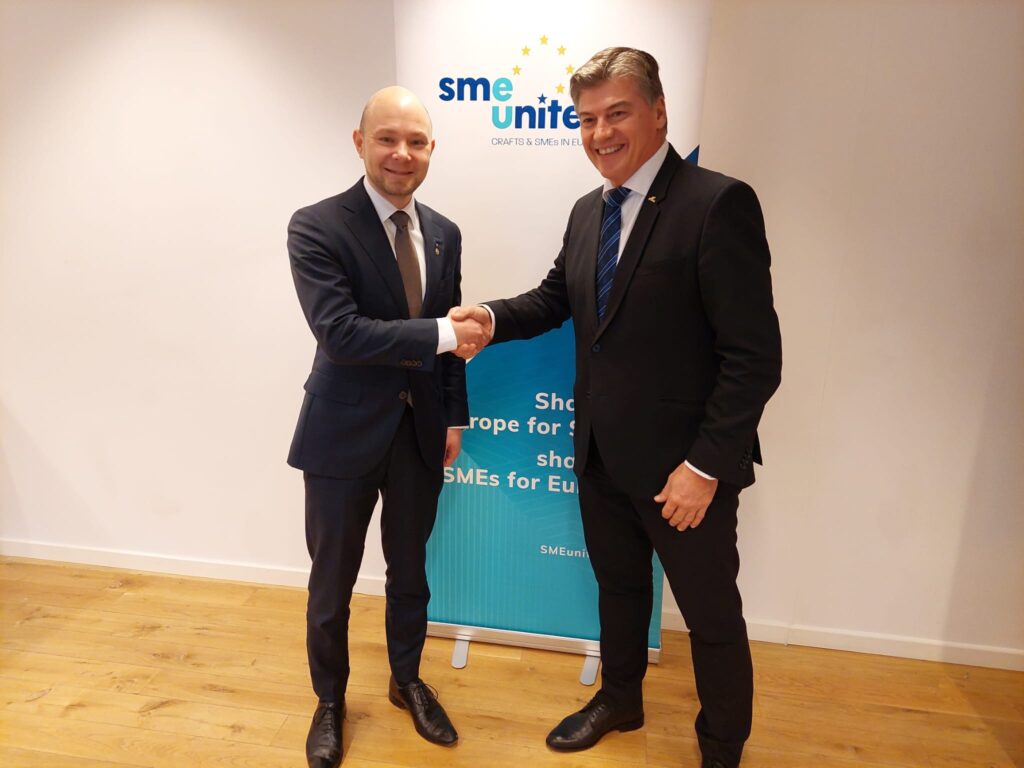
2023
The European Commission announces the SME Relief Package, a package of measures for SMEs promoted by Pimec, which foresees the reduction of payment terms to 30 days in the private sector.
Pimec strengthens its presence and activity in Madrid with the incorporation of Ferran Bel as permanent representative.
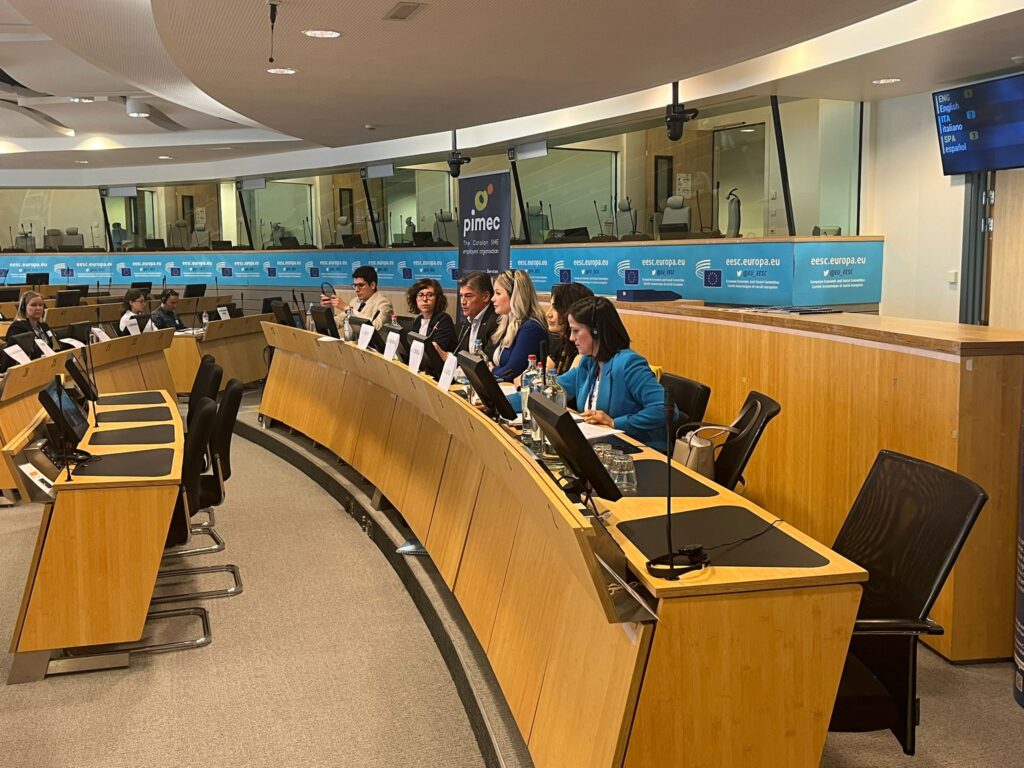
2024
Pimec becomes part of the Spanish Social Dialogue with its entry into the Economic and Social Council (CES), the National Consultative Commission on Collective Agreements, as well as the National Council of SMEs.
The Congress of Deputies approves, at the proposal of Pimec, a reduction in Corporation Tax for micro and small companies. This measure contributes to the reduction of the tax burden in accordance with the business dimension.
Pimec celebrates half a century of business activism with a Tour throughout the Catalan territory and a major event with the participation of all the presidents of the Generalitat de Catalunya. The SME Awards were also the framework for celebrating the entity’s 50th anniversary at the Palau Sant Jordi.
We achieve objectives in the fight against non-payments outside the legal deadline in the European context with the approval of the European Regulation against late payment, which includes historical claims by Pimec.
2025
Pimec achieves the implementation of measures, included in a Decree Law, to favor the participation of SMEs in public procurement.
The regulations include historical claims of the entity such as the division of contracts into lots, mechanisms to reduce bureaucracy and execution deadlines, as well as direct payments to subcontractors.